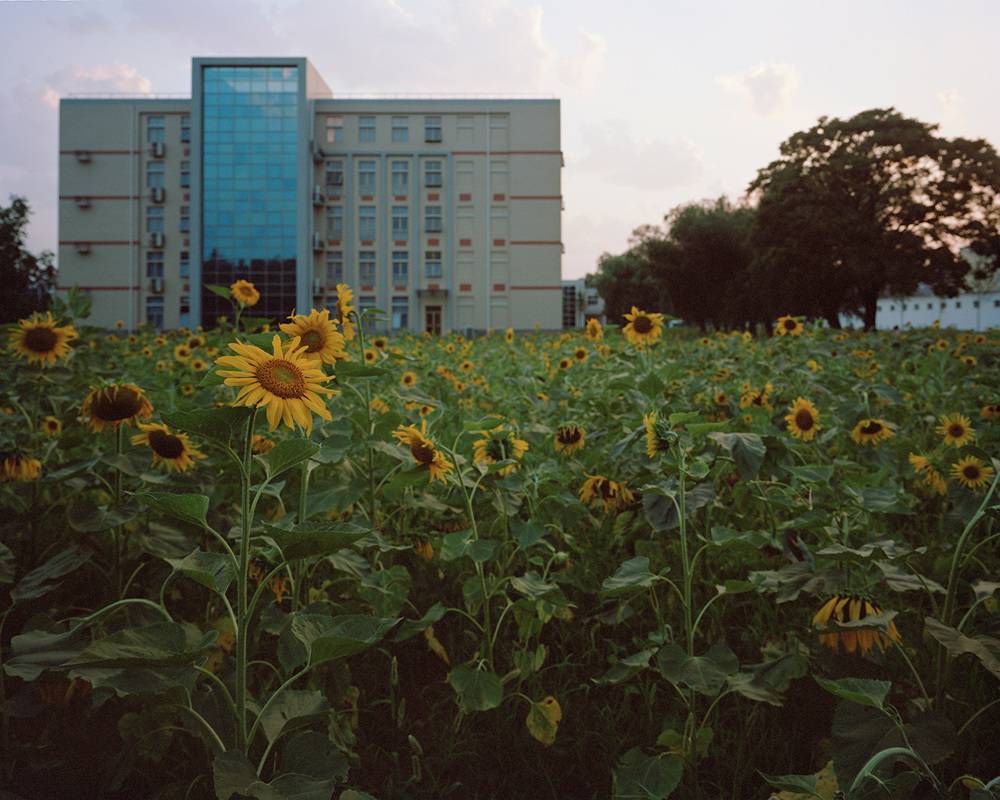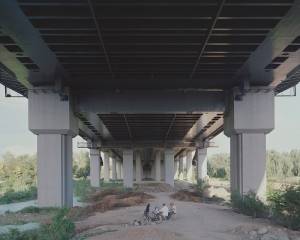
Most of us have had some sort of experience of having a place we love, whether it’s our hometown, favorite natural vacationing location, or maybe even just a park we went to when we were young, being industrialized in the name of progress and urbanization. While that is not necessarily always a bad thing, in our quest for better technology, higher efficiency, and increased profits, other things can have a tendency to be left behind, namely the environment and a communities overall health.
Luckily, these quests for industrialization have not been left unquestioned. I interviewed Chen Shen, a photographer about his upcoming show The Garden Metro, in which he explores the impacts of a rail line in his hometown of Changping, China, and questions that if in our quest to always be improving, what if we’re really just falling behind?
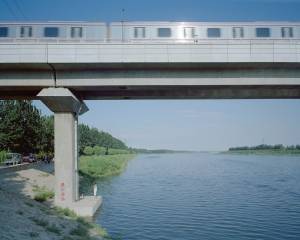 Smile Politely: So your upcoming show, The Garden Metro, is an exploration of the 14th rail line built in your hometown in Changping and its effects on the surrounding area. When you began this project, was it with the intent to show the effects of industrialization and urbanization, or did it evolve along the course of the project? How do you think your photographs achieve your intended message?
Smile Politely: So your upcoming show, The Garden Metro, is an exploration of the 14th rail line built in your hometown in Changping and its effects on the surrounding area. When you began this project, was it with the intent to show the effects of industrialization and urbanization, or did it evolve along the course of the project? How do you think your photographs achieve your intended message?
Chen Shen: I started and completed the project during the summer of 2013. I’d rather say the effects of industrialization and urbanization are part of the context. The plan was that each photo in this project was around a specific train station, but I didn’t try to stress that point directly on the visual strategy. I would define this project between the blurry line of fiction and documentary.
SP: I think the title certainly gives a few clues, but why did you choose to name it The Garden Metro? How do you think the title reflects the body of work?
Shen: The first and last photos are of the same metro station, so I’d like to invite the readers to step on a journey as the series evolves. Backyard garden is kind of the disctrict’s nickname and flowers are one of the metaphors I used in this series. They appear repeatedly in most photos and some are concealed in the illustration.
SP: In response to what were your ideas behind The Garden Metro, you say that “It’s an epitome and allegory for the dilemma of the country”. What do you think is the “dilemma of the country”? How does your art address this conflict, and are you just offering observations, or do you think there is a solution to this problem?
Shen: The memories China have about wars and poverty is miserable. It’s almost like a type of political correctness of the government to keep developing. It’s also part of the “assured” nature of the party to make sure there is wealth equality. But when you are focusing on running fast, you may forget where you are from and where you are going. Economic and technological developments provide an illusion that we have a promising future, but at the same time we are losing our identity. Since socialism and capitalism are imported theories and then become a pretext for everything else, China subsequently converts to a suspicious concept within such a context.
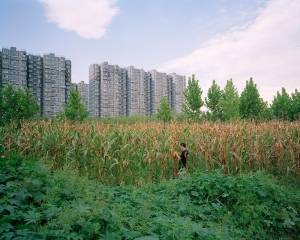 SP: Do you use any specific techniques to portray your subjects in your photography?
SP: Do you use any specific techniques to portray your subjects in your photography?
Shen: Metaphors are used in the series. The compositions are kept symmetrically, which is also a hint. I don’t try to stress any elements specially though. I hope to keep them introverted and to remain an imaginable space for readers.
SP: By focusing on your hometown, do you think that has influenced this project in a way that would have been different had you photographed a different area?
Shen: The strategy and the techniques that I used in the series are determined before the shooting, so it would be different if I photographed a different place.
SP: Your educational background is not in photography. How has studying International Studies and New Media influenced your study and style of photography, if at all? Why did you choose to pursue a master’s in photography after studying International Studies and New Media?
Shen: They do affect my art in a sense. It’s more like an influence on the way of thinking or the structure of knowledge. Photography is a kind of media for communication and expression, so it’s important to be clear about what you want to say, or in your exchange with others. To this extent, I’d say my academic background influenced my photography but it didn’t influence it visually. I guess it’s about where my passion lands; I also appreciate photography as a modern and democratic way for creating art.
SP: By growing up and studying in China, and then achieving your Master’s degree in America, do you think those two different perspectives have shaped how you view and create art? How, if at all, has this influenced The Garden Metro and its purpose?
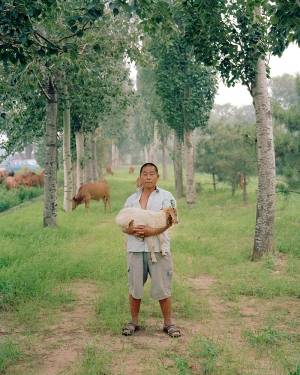
Shen: The experience of living and studying in America pushed me to think about my previous experience in China. We are in an era where all cultures and information are being spread, merged and evolved very swiftly. So the reason why I chose my hometown as the location is I wanted to blend my private experience into this project.
SP: What are you hoping people will gain or take away from The Garden Metro? Do you think it will affect how people view “progress” and its proposed benefits? Why do you believe it’s important to continue to expose new infrastructures and their role within a particular area?
Shen: As I said in the statement, the series is not a judgment of a certain scheme that tries to benefit the people, but ultimately results in the exact opposite. I would appreciate that if people take anything from my work. I never want to hand on a “correct answer”.
The Garden Metro by Chen Shen will be held at the Independent Media Center on Saturday, November 7th from 6 p.m.-8 p.m. IMC can be found at 202 South Broadway, Urbana, and more information about The Garden Metro can be found at their website.








